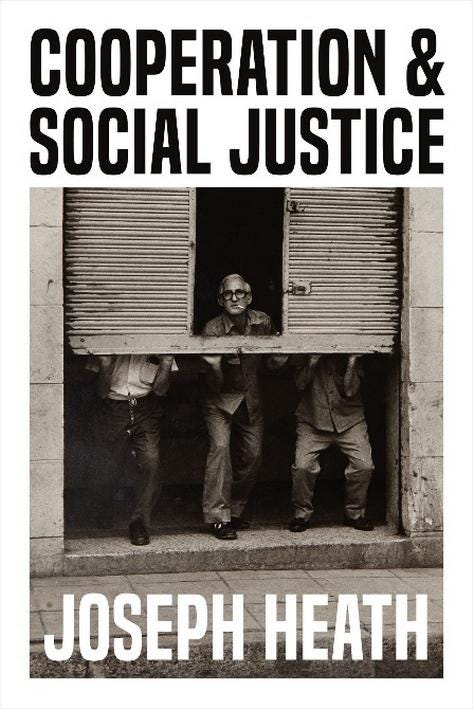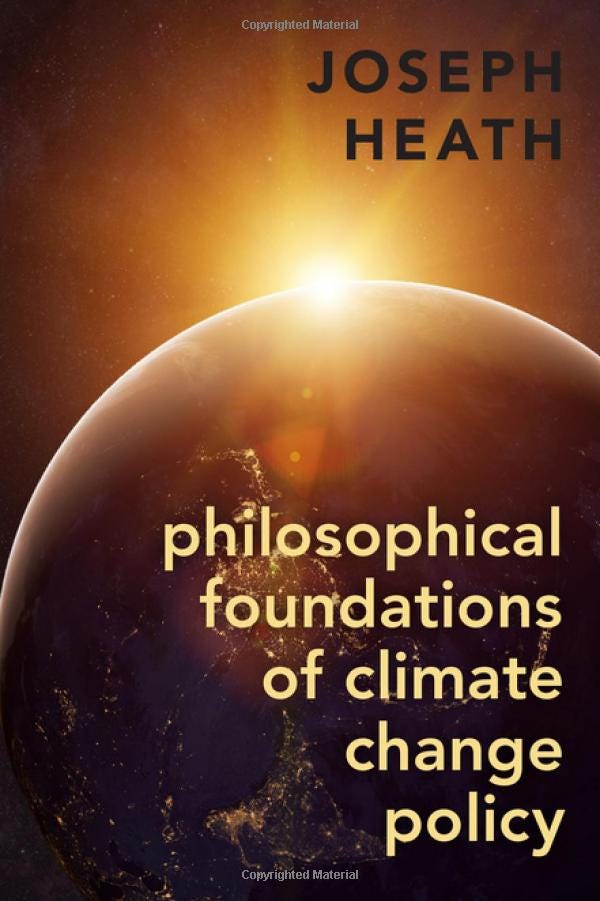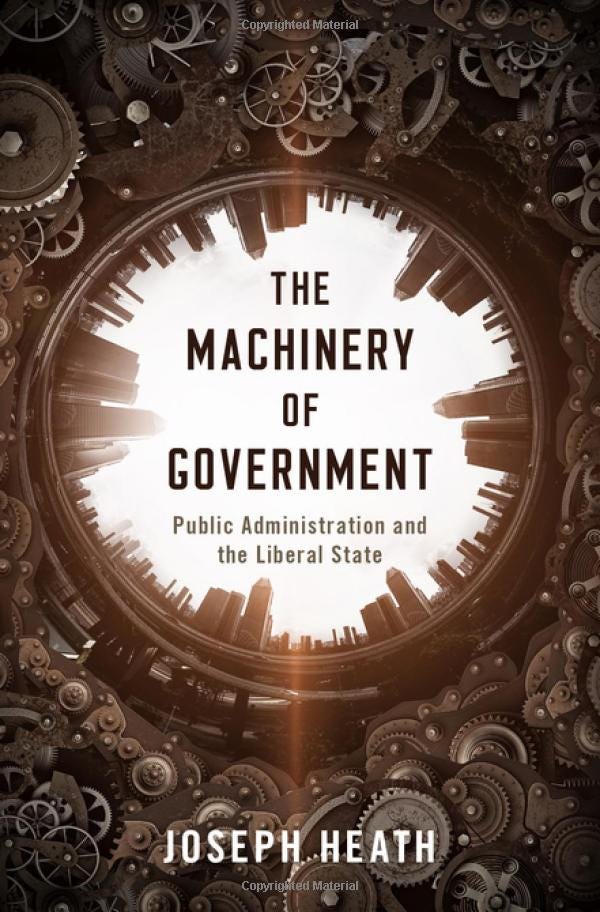What I've been up to
A lot of early subscribers here will have been regular readers of my old blog, In Due Course, which some friends and I maintained from 2014 until 2018. (I recently let the domain name lapse, but the good folks in IT at University of Toronto have made a backup available at: https://induecourse.utoronto.ca/, for anyone who wants to dig up or link to old posts). The main reason that I stopped blogging back then was that I had a backlog of partially-completed academic projects I needed to focus on (more on those below). That and the public sphere at the time was becoming ridiculously toxic. Between Jordan Peterson kicking the hornet’s nest and several of my friends getting canceled, it seemed like a good time to take a break.
Since that time, I have become persuaded that Substack offers a better model for writers than the old weblog system. Looking at the traffic patterns on the blog, it was clear that the number of people who were arriving directly at the site (e.g. having bookmarked it, or through the RSS feed) was steadily declining, and that all the traffic was being driven by the major platforms. So the idea that one’s work was being made available on the web “for free,” was a bit of an illusion. By putting it up free, one was essentially allowing Google, Twitter and Facebook to monetize one’s content. A platform for writers that makes it easy for individuals to monetize their own content therefore makes a lot of sense. So I’m on Substack now, mainly because I support the concept, partially because it’s really slick and easy to use, but also because I don’t feel like being a chump for Zuckerberg, Musk, or Pichai.
Of course, I’m also a public servant earning a decent salary, and so I don’t need to make a living off this. So it’s not paywalled, and probably won’t ever be (although I might someday create a subscription option for those who want to comment, if that seems worthwhile and I have the time to participate).
In the meantime, a bit about what I’ve been up to: Probably the biggest change, which one will see reflected in the articles here, is that I’ve been spending a great deal more time in the U.S., living in New York. In particular, I spent most of COVID south of the border. This is the second time in my life that I’ve spent an extended period of time in the U.S. (I lived in Chicago for 5 years in the 1990s while doing my PhD at Northwestern). Whenever I do so, I become increasingly impressed by how dramatically different that country is from Canada. As a result, when I’m back in Canada (as I am now), I am frustrated by how much Canadians underestimate these differences. I am also, at the moment, particularly appalled by the cognitive capture of the left in Canada by American social justice politics. (To pick just one example, this week the Student Life office at my university is holding various special orientation sessions for minority students, including one for “LatinX” students, while offering absolutely nothing for francophones. I think this might be the most Toronto thing ever...) So I’ll have a lot more to say about the U.S. than in the past, mainly because I’ve been thinking about it a lot, partly in the hope that some Americans might find the semi-outsider perspective useful, and partly because so many Canadians seem intent on turning our politics into a proxy battle in the American culture war.
As for the academic projects that I mentioned, I have published four books since I stopped blogging, one in each of the past four years. I did it despite the fact that this sort of behaviour is frowned up in philosophy. The prevailing view is that publishing more than one book every five years, if not ten, predicts severe quality degradation. After all, how hard can you have been thinking about a subject if you’re putting out books that fast? My defence is that they were not written seriatim. I had actually been working on the first three for about a decade. The problem is that I was alternating between projects, and so never managed to get any of them finished. COVID lockdowns provided the extra scaffolding needed for me to exercise appropriate will-power. (I also had a fantastically well-timed Killam Research Fellowship that released me from teaching for two years starting in the fall of 2020.)
For those who are interested, here are the books and their associated blurbs. These books, I should note, were all written for academic audiences, so fans of The Rebel Sell or Enlightenment 2.0 may not find them very interesting or useful:
Ethics for Capitalists offers an updated statement of the Market Failures Approach to business ethics, suitable for use in undergraduate business ethics or PPE courses. While the competitive context of the market economy provides economic actors greater freedom to pursue their interests, it also imposes moral constraints on the range of strategies they may employ. The pursuit of profit must be consistent with the overall objective of market institutions, which is to promote efficiency in the production and allocation of goods and services. Ethics for Capitalists draws out the implications of this view for business strategy, corporate governance, managerial authority, and shareholder primacy.
This book comprises a set of six previously unpublished philosophical papers on the theme of “cooperation and social justice.” It is a common approach in contemporary political philosophy to conceive of the major institutions of society as creating a system of mutually beneficial cooperation. Principle of justice, on this view, are essentially a set of normative guides, used to allocate the benefits and burdens of this system of cooperation. This book explores the connection between the normative principles that feature in a theory of justice and the institutional arrangements required to achieve them. One cannot think about questions of social justice without also considering the institutional arrangements through which they might be realized, and vice versa. Each of the papers in this collection reflects this approach, applied to a different topic: the feasibility of socialism, objections to the profit motive under capitalism, the significance of status inequality, the problem of self-destructive behaviour, the question of open borders and immigration, and finally debates over racial inequality in the United States.
Although the task of formulating an appropriate policy response to the problem of anthropogenic climate change raises a number of very difficult normative issues, environmental ethicists have not played an influential role in government deliberations. This is primarily due to their rejection of many of the assumptions that structure the debates over policy. This book offers a philosophical defense of these assumptions. There are five important barriers: First, the policy debate presupposes a stance of liberal neutrality, as a result of which it does not privilege any particular set of environmental values over other concerns. Second, it assumes ongoing economic growth, along with a commitment to what is sometimes called a weak sustainability framework. Third, it treats climate change as fundamentally a collective action problem, not an issue of distributive justice. Fourth, there is the acceptance of cost-benefit analysis, or more precisely, the view that a carbon pricing regime should be guided by our best estimate of the social cost of carbon. And finally, there is the view that when this calculation is undertaken, it is permissible to discount costs and benefits, depending on how far removed they are from the present. This book attempts to make explicit and defend these assumptions.
Political theorists are aware that the old-fashioned model of state power, according to which elected officials make policy decisions, which are then faithfully enacted by a loyal cadre of public servants, is hopelessly outdated. The complexity of the modern state, not to mention the difficulty of the economic and social problems it confronts, is such that a great deal of rule-making power is delegated to public servants. Yet if public servants are not merely in the business of administration, but are also deciding questions of policy, how are they making these decisions, and what normative principles inform their judgments? The Machinery of Government attempts to answer this question. The central challenge involves reconciling the tension between the traditional commitment to political neutrality on the part of the civil service with the fact that administrative discretion inevitably involves making normative judgments.





